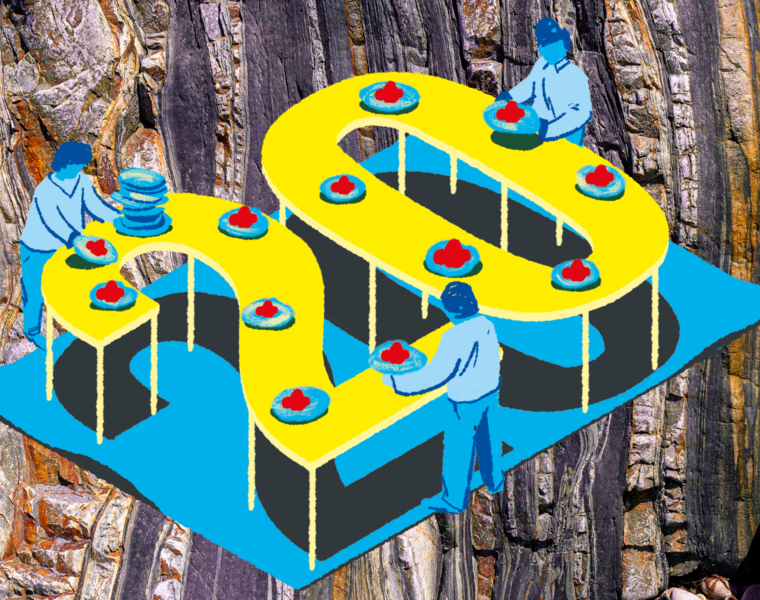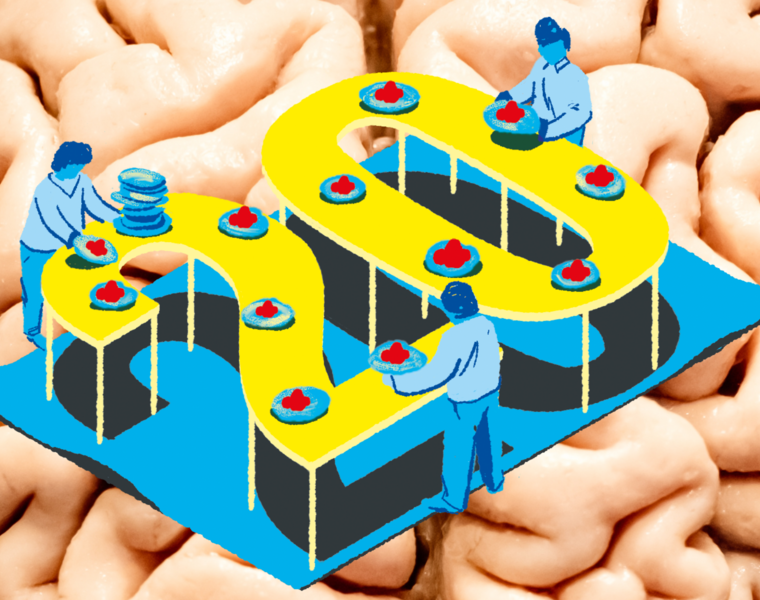Essay by Yuhua Gao
“Helping is not, as conventionally thought, a charitable act that is praiseworthy to do but not wrong to omit. It is something that everyone ought to do." - Peter Singer
One day in the 19th century, president Abraham Lincoln sat in his chariot, discussing philosophical questions with his colleagues. When they came to the topic of self-interest and whether it is possible for us to act without it, Lincoln answered in the negative. A moment later, however, they saw a wounded squirrel lying on the side of the road. Seeing this, Lincoln immediately told the driver to halt the chariot, jumped off, and ran towards the squirrel. He tended it until it looked fine again, before returning to join his colleagues in the chariot. One of them scoffed—Lincoln had just made an argument denying that one can ever not act in accordance with their self-interest, yet jumped off the chariot just to save a squirrel, disregarding how it made them late to their meeting—something he himself considers undesirable. However, Lincoln responded that he helped the squirrel not because he puts its interest above his, but that he gets happiness from helping the squirrel, and this happiness is better for his self-interest than being on time for the meeting.
Lincoln’s actions pose an intriguing question respecting why we help others, and acts as a helpful guide to our analysis of Singer’s quote. Do we help others because we want them to further their interest, or is something else behind our motivation? In this essay, I will first look deeper into Singer’s insertion, deconstructing it into three separate points of examination. The first point is to do with whether helping others is a charitable act, where I will agree with Singer and argue that it is not, and the second and third points discuss the nature of helping someone, and whether this nature allows the act of helping to become a normative imperative at all. Lastly, I will briefly consider some other issues, then conclude.
Understanding Singer
In his quote, Peter Singer argues that helping is something everyone should do, not something that one deserves praise for, and spared of any consequences when not done. Thus, his quote can be summarised into 3 statements:
- Helping is not a praiseworthy, charitable act.
- It is wrong not to help.
- Everyone should help.
It is important to note here that although Singer did not explicitly say that we should always help, by saying everyone should help and, more importantly, that not helping is wrong, we can reasonably assume that he wants us to help others at all times.
In this essay, I will address all three statements in a considerable amount of detail, and then reach a conclusion which partially disagrees with Singer.
However, before the actual analysis, it is important to define the notion of helping, as it is the main point of discussion. By helping, we conventionally mean to further someone else’s interest. This is normally manifested as making it easier for them to achieve their goal by offering your time, resources and skills. (This definition is far from perfect; that is something I will address later in this essay.)
The merit of helping
Is the act of helping charitable and praiseworthy? According to Lincoln, helping is only for one’s own happiness—he helped the squirrel not because he wants it to be able to enjoy the continuation of life and avoid the pain of injury, he helped it because he took pleasure in knowing that it can enjoy the aforementioned things—which is precisely why he wanted to help it. In other words, if he did not take pleasure in knowing that the squirrel will live a better life because of him, he would not have helped it.
Another way to think about this is the avoidance of guilt—for instance, if you see a person drowning in a nearby lake, and you are perfectly capable of helping her, but didn’t, you will likely feel guilty. The notion of helping someone comes naturally to us—as Mencius said, everyone has a heart sensitive to the suffering of others. (Although this doesn’t automatically follow that we will always know how to help them—this is something I will discuss in more detail in another section of the essay). Thus, if we have such a heart, we will naturally want to help others—it is only a natural instinct, performed because we want to obtain happiness and avoid guilt.
However, if helping is a natural instinct, then is it all that praiseworthy? I argue not. If natural instincts are praiseworthy, then acts like eating, sleeping or going to the toilet should be equally praiseworthy—after all, they are all natural instincts.
Here, one may object that not everyone is born with the instinct of helping—they may not derive pleasure from seeing others more well off, so that makes being born with the instinct of helping praiseworthy. However, the notion of being praised and blamed is to be separated from our personal favouritism towards that thing. To demonstrate this, suppose you have daughters, in which one is more attractive than the other. Will you say that she is praiseworthy and better than the other, just because she is born with beauty while the other is not? The conventional response in modern society would be a ‘no’.
Nevertheless, we may still appreciate the results of someone possessing the instinct of helping and not appreciate the lack of it. That is, when we compliment someone for helping, we like the benefit they bring to us and this world, or simply because we like this instinct more than the instinct of not helping others, like how we like attractive people better—we are not saying that they are characteristically more praiseworthy than someone who doesn’t, since they are both merely acting on their personal instincts. Again, one may object that beauty is subjective, and not all may agree that one daughter is prettier than the other, and this is not the case with helping. However, it is easy to conceive a person who hates those that try to help her—some people may simply dislike others meddling in their business.
By separating the compliment towards consequences and that towards one’s will and intention, I am assuming a Kantian, deontological stance—as opposed to a consequentialist one, but since that is not the focus of this essay, my argument will have to stand on just the grounds previously given.
The nature of helping I
In the previous section, I have established that helping is a natural instinct, therefore it is not praiseworthy. However, that doesn’t automatically follow that we know how to help others, and therefore should make it an imperative to always do so. This problem stems primarily from the fact that the very nature of helping is obscure.
Following on from the previous definition, helping is the furthering of someone else’s interest. This definition seems plausible—for instance, when we see an old lady struggling to carry a heavy luggage, then we can offer to help her carry it to where she desires it to be, thus furthering her interest. However, things become trickier when we are not sure what another person’s interest is. For instance, you may leave some coins n the violin box of a person playing the violin on the street, thinking that he needs money and is performing in order to earn it. However, it may turn out that he is only playing for fun, and the violin box lying there is not intended for people to put coins in. In fact, he may even consider it an insult to have someone pity him.
Nevertheless, one can object and say that in most cases this is not a problem, because by communication one can learn the will of others. While this is true, the act of helping others, as defined as furthering the interest of one’s subject, is still problematic. For example, your friend, who struggles at maths, may want you, who excels at it, to help him cheat in an upcoming exam. This is problematic in two aspects: firstly, is it really in his interest to cheat? Secondly, it may get you in trouble; do you need to sacrifice yourself to help others? The second point will be discussed in more depth later. For now, let us focus on the first. It is in his interest that you help him, however, as a friend, you may deem his moral integrity to be more important than him passing the exam, or you may want him to develop his own mathematical skills, and learn to stop relying on others. In this case it may seem counterintuitive, not to mention quite wrong, to help him. Let’s take a more extreme case: what if your good friend tells you to assist him in committing suicide? He may be suffering so much, he thinks it is completely in his self-interest for you to help him die. However, you cannot help but wonder whether this is really what he wants—what if he will regret it in the future? Maybe you think the problems he is suffering is actually very inconsequential, and should not cost him his life.
Another objection to making helping someone a normative obligation is that in certain times, it is better not to help. For instance, as a parent, it is usually considered harmful to have everything done and perfect for your children, leaving them with nothing to worry about, spoiling them. This will have the result of them being unable to become independent and take care of themselves in the future, which you may feel is entirely wrong, and worse for their self-interest in the long run. In fact, it is much better to push them, for them to grow up and become a competent member of the society, someone who can take care of themselves, instead of always needing someone to cook for them, clean their laundry, etc. However, the children may totally believe that it is in their self-interest to have you do everything for them.
Thus, it seems we cannot blindly put our resources and time and skills into whatever others’ interests are—maybe, we should make our own judgements, too. Hence, if helping others is defined this way, it seems the statement that ‘everyone should always help others, and it wrong not to’ is not very convincing.
The nature of helping II
Maybe the fact that we shouldn’t blindly help others to achieve their interest, whatever it is, doesn’t mean we should forgo helping altogether. In other words, we can maybe adjust our definition. Maybe helping is pushing one’s subject towards an interest that one approves of.
Thus, one should not do all the housework for one’s children, as one knows it is detrimental to their interest in the long run, making them incompetent people. On the other hand, one knows that teaching them to do some housework is beneficial to them in the long run, although they may be reluctant now. Thus, one should help them by not helping them the way they want—namely to do all the housework—but the way one themselves want, which is to teach them independence. This is also in accordance with Lincoln‘s actions; he made a judgement on the squirrel’s behalf that he is better off alive and not hurt—the squirrel did not reach out for help proactively.
However, what if the conundrum is not on housework and saving lives, but on more controversial topics, like academic pursuits? What if one’s child really likes art, and want to pursue that at university level, yet one knows that they are likely going to starve with the job prospects of an artist, and that they will be better off doing something like engineering? Thus, sticking to the new definition of helping, one may feel that forcing them to do engineering is helping them. However, what if they are just not cut out to be an engineer? Then, if they really tried to become an engineer, their future will be even worse—maybe the child is even good enough to obtain a degree in engineering. Moreover, what if the child is really the next Picasso, but one just haven’t realised? Thus, one’s help, which one deems to be the best for their subject in the long run, may fail. After all, how can one be certain that their judgement of someone else’s will is more accurate than the person themselves? Surely it is no doubt that people know themselves the best. Therefore, If one does not rely on communication to know what the other’s interest is, and judges their interest with one’s own mind and subjectivities, then it may lead to a lot of failures, miscalculation, and misunderstanding. After all, like Paul Watzlawick stated, ‘the belief that one’s own view of reality is the only reality is the most dangerous of all delusions.’
Furthermore, what if the drive to help one’s children by forcing them to become an engineer is not that it will be best for them in the long run, but that they themselves would rather have an engineer child than an artist? What if they want a successful child to show off, or one that has enough income to provide for them? Let us consider a more extreme case: if an evil dictator that abuses his power and brainwashes their subjects believes that although they may not appreciate brainwashing and threats, it will be better for them in the long run. Then, is that also considered helping? After all, the dictator can be megalomaniac enough to believe that a person without their own interest and only knows worshipping him is better than a person who has independent thought. This demonstrates how the line between helping someone achieve what one wants them to achieve and simply using them for one’s own interest is blurry. If the two are equated, it would be unthinkable to say that not helping is wrong—the poor citizens don’t at all need the dictator’s help. Thus, helping someone in one’s own way could easily have been manipulating them for one’s own self-interest. According to Singer, then, by brainwashing them, the dictator is doing the right thing.
However, let us remember that this isn’t necessarily all bad—after all, the squirrel very likely appreciated Lincoln’s help. This is only to demonstrate that helping in this sense is by definition flawed—the other person’s treatment is completely at the mercy of one’s self-interest, which may not even be right. On top of that, the fact we would be reluctant to help another when we disagree with their interests, and that this latter kind of help is fundamentally one representation of one’s own self interest that needs to be carried out on another individual again proves that we help only out of self-interest—namely, the happiness we obtain from doing so. If we don’t get happiness from our children not being able to do their own dishes at the age of 28, we will not help them do their dishes until then. Thus, we can conclude that the statement that we always ought to help others is not convincing, as it puts them under the mercy of our whims all the time.
Another problem with helping others, is that it might have the opposite effect and thwart them from reaching their goal. According to Singer, everyone should help one another, and it is wrong not to. Therefore, it will often be the case that multiple people would want to help the same person. However, an issue here is that they may all want to help him in a different way—some may want to further his own interest, some may want to impose their own interests, which are different, onto her, and thus all take different actions. Going back to the children example, if two parents have conflicting beliefs about what a child should pursue in the future, they may make the child do both—that is, the father may want her to be an engineer, and trains her for that, while the mother would like her to be a linguist, and make her spend a lot of time learning languages. But as we all know, success takes effort and commitment, so if different people try to help the same individual in different ways, it may dilute their attention and thus make it harder to achieve their goal—whatever that may be.
In these two sections I have explained the problematic nature of helping, and how unthinkable it is if made into an imperative, as it can often lead to adverse consequences. Sometimes people are just better off without your imposing of your will—as I have also established, helping others is in reality just an exertion of one’s own self-interest.
This also responds to two points I mentioned in the first two sections: the first one is whether we should sacrifice ourselves to help others. If the aim is to maximise our own self-interest, we should only sacrifice if the pleasure of seeing the results of our sacrifice outweighs the pain we endure by sacrificing. Furthermore, it is in accordance with my first point that it is our natural instinct to help others. We help others only when it is in our natural instinct to do so. When it is not in our natural instinct—like when we do not want our children to be unable to take care of themselves—we will not help. Therefore, our help is dependent completely on our instincts, which are a part of our self-interest.
So Singer’s imperative can be translated to ‘always to impose one’s own interest.’ However, as I have pointed out, it seems that following our own interest to help others can also be problematic—that is, if one’s self-interest is evil, like the dictator’s, their help would not be appreciated.
Thus, it seems reasonable to conclude that making the helping of others an imperative is not ideal, as we will often misconduct it. Besides, it seems like the more important imperative is to improve one’s self-interest—or, in Aristotle’s words, practice to become virtuous and know the real right or wrong. Only then can one healthily decide when to and whether to help others. This is not to say that Singer is wrong, and we shouldn’t help others—in fact, my previous arguments would lead me to the conclusion that we should sometimes help others, but the far more important thing is to improve our own will—then, if we still deem that others need our help, like Lincoln, we should help others. However, there will be times where we deem that we shouldn’t interfere—and in those instances, we should not blindly follow Singer’s suggestion—or, in Watzlawick’s words, if and only if we are certain that our reality matches that of another person, we should intervene—we should not always blatantly impose our own will onto others. Of course, even if we did become virtuous and did not always help others, we may still sometimes misjudge whether to help them, and how, but that is still much better then imposing our arbitrary will all the time—furthermore, whether or not we still make mistakes when helping others is irrelevant to the question, as either way we are certainly not helping all the time, which is sufficient to deny Singer’s statement.
Remaining questions and concluding remarks
Apart from the aforementioned flaws within Singer’s thesis, there are additional criticisms to his position, and those are directed at him within his philosophical context. I will briefly consider the most prominent fo them, then conclude.
I have not yet in my previous arguments considered Singer in his philosophical context, and feel like doing that would grant a more complete analysis of his position. Singer is a famous modern-day utilitarian, so he considers good to be maximising happiness, and bad to be not doing so, or not minimising pain. Worded simply, utilitarians want the greatest good for the greatest number. His thesis is in accordance with this belief. He believes that we should always help others because that maximises happiness, and is therefore is moral. However, as I have proven previously, helping, in many cases does not lead to increased happiness. A further problem Singer needs to consider is whether it is acceptable to help others if it means harming someone else. Suppose Singer is a doctor. He has five dying patients, each in need of a different vital organ. However, he doesn’t have any donations, and cannot buy the organs he needs. However, on the street, he sees a sleeping, homeless person, whom he could easily kidnap and dissect to provide the organs for the five people. This seems like a good deal to utilitarians—one life in exchange for five. But to most people, this clearly seems unthinkable, because it involves the killing of an innocent person.
Another objection to utilitarianism is also previously mentioned—we, as humans, do not have the ability to effectively calculate the happiness and pain our actions may produce. We don’t know whether we are helping or harming. Hence, this theory is to a great extent too impractical to be practised.
This leads me to the conclusion that I agree with Singer that helping is not praiseworthy, but I also disagree with him about his point that we should always help others, and not doing so is wrong, on the grounds that always imposing our self-interest onto others is wrong, as well as the fact that where he is coming from, namely utilitarianism, is problematic.
Participants of the Philosophy Olympiad can choose whether they want to write their essays in German, French or English.
Essay by Nitya Rajan
“If you tried to doubt everything you would not get as far as doubting anything. The game of doubting itself presupposes certainty.” - Ludwig Wittgenstein
What is it to doubt? To doubt is to call into question, to not trust that something is the way it seems to be, be it the way we perceive it to be or the way we have been told to perceive it to be. What is it we are doubting then? Our senses, or our surroundings?
In the end, the question isn’t even very pertinent, for our surroundings are nothing but a result of our senses. Without them, we would not be able to perceive our surroundings, and if we can’t do that, surroundings only exist in a objective way, completely independent of us, meaning if we shut off our senses, the world will continue to exist, but our world will not, for there is nothing more to input to it. And anything we would doubt would be something we perceive, therefore our surroundings and therefore our senses. So we can simplify and say we are, first of all, doubting our senses. This means we do not trust our input. But what does trust mean? To trust is to rely on the truthfulness and accuracy of something (Source: Dictionary defintion) to believe that something matches the truth. What truth? If it is our senses we do not trust, then it would be circular to try to match with any subjective truth. Therefore, we are matching what we perceive with an objective truth. We doubt what we perceive by matching it with its absolutely true counterpart, and if there is a discrepancy, we judge our perception as false. (see: Fig 1).

Fig 1: The process of doubting something
But if we doubt everything, absolutely everything, we would doubt this objective truth too! But that would result in a contradiction, for we cannot doubt something that 1. We cannot even perceive (Objective truth is a theoretical concept, which we cannot perceive for perceiving it would destroy its objectivity) and 2. Is the basis on which we doubt something. If we were to do that, there is nothing we match our doubts to, either to dispel the doubt or to justify it, and therefore, it stops being a doubt at all, and remains nothing but a perception.
Another such contradiction arises when you question your existence. “I think while not existing, therefore my thoughts do not exist, therefore I do not think.” This sentence contradicts itself instantly. We are therefore forced to believe that because we think, we exist, or the famous saying by Descartes, “Cogito Ergo Sum”. Therefore, to be able to doubt, it is necessary to believe in an absolute truth and in ones existence. This means that, perhaps paradoxically, it’s impossible to doubt everything without believing in some things. These logically undoubtable (for if we were to doubt them doubt itself as a concept would collapse) things are what I would call axioms.
But assuming we do believe in these axioms, where does doubting everything get us?
As established before, when we doubt, we are in fact doubting our perception. And we have good reason to do so: often, our senses can be proven wrong. Optical illusions, hallucinations, why even dreams, the list of these deceptions goes on. However, if we doubt everything, that we have even the slightest inkling could be false, then by doubting it what we are actually doing is checking for its truth. This theoretical objective truth is believed to be indisputable, or certain. By doubting and matching observation with truth, we filter perception into true and false, creating a world view we are certain about. Therefore, step by step, doubting everything leads to certainty, or as the titular quote states: “The game of doubting itself presupposes certainty.” - to be certain of anything, one has to doubt it first. Doubt becomes a tool in the examination of the truth. Doubt leads to certainty. If you cannot doubt something, you cannot be certain of it.
Through this conclusion, an interesting contradiction arises: to doubt anything, you need to doubt it against something you are certain about (something indisputable), but yet only by doubting everything do you reach a sense of certainty. If you base certainty on something technically uncertain (since you cannot doubt it) such as an axiom, how is it certain? How to resolve this contradiction?
This is where the human side of philosophy arises. To be grounded in anything, even doubt, nothing other than blind belief can resolve such a contradiction. Some may say that this objective truth can be attained, by cutting off all senses and focusing solely on the spiritual. Once this objective truth (for now this truth has been perceived without any senses) is realized, they say the person is enlightened. Since this enlightened person now knows the objective truth, doubt becomes superfluous.
Others may say that this objective truth manifests itself as God, and this God must simply be believed in. Doubting God is simply out of the question, because without this one belief, your entire understanding will crumble since the concept of doubt (and therefore certainty) becomes impossible.
The certainty of anything and everything else can be derived from this one blind belief, through the process of doubt.
To conclude, I agree with Wittgenstein's quote: doubting everything (including an objective truth) will lead to the concept of doubt breaking down. However, doubting with the idea of this truth leads to the discovery of certainty. This would however require that the idea of an objective truth be blindly and utterly believed in, be it under the idea of God or Enlightenment.
More information about the authors and the Philosophy Olympiad






